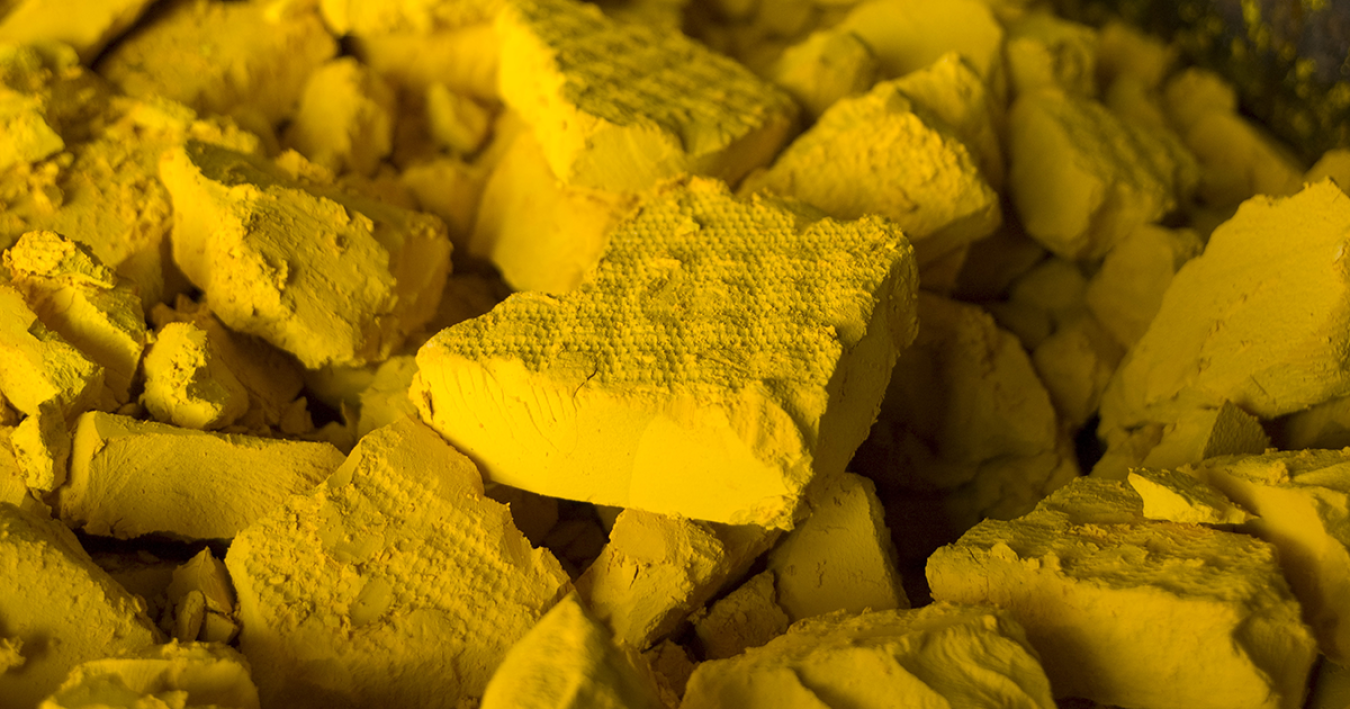The ban on Russian-sourced uranium products marks monumental shift for our civil nuclear energy sector.
May 14, 2024
Uranium yellowcake is used in the preparation of uranium fuel that is used in nuclear reactors.
President Biden recently signed bipartisan legislation to ban the import of uranium products from Russia, marking a monumental shift for our civil nuclear energy sector.
This is truly a transformative time for nuclear energy.
We’re restarting old reactors, building new ones, and working to deploy advanced reactors to help us meet our clean energy goals.
All of those will need fuel, and we can no longer rely on bad actors like Russia to supply it.
This ban is essential to strengthening our nation’s energy security and supports the development of uranium conversion and enrichment services right here in the United States that will result in thousands of new jobs for Americans across the country.
A Closer Look at the Ban
The ban goes into effect 90 days after it was signed into law and prohibits any imported unirradiated low-enriched uranium (LEU) produced in the Russian Federation or by a Russian entity.
The Biden-Harris Administration does not take this decision lightly.
Russia has roughly 44% of the world’s uranium enrichment capacity and supplies approximately 35% of our imports for nuclear fuel.
We recognize that a transition away from Russian-sourced fuel will not happen overnight.
The Department of Energy estimates that U.S. utilities have roughly three years of LEU available through existing inventory or pre-existing contracts. To ensure our plants do not experience any disruptions, we’re creating a waiver process to allow some imports of LEU from Russia to continue for a limited time.
In the meantime, we’re taking aggressive steps to establish a secure and reliable uranium supply market.
The passage of this ban unlocks the $2.72 billion Congress recently appropriated to increase production of LEU and high-assay low-enriched uranium (HALEU) to support existing and new advanced nuclear reactors.

Containers of uranium hexafluoride that are heated back to a gas and chemically processed to uranium dioxide powder. The powder is then pressed into ceramic nuclear fuel pellets.
Strengthening our Nuclear Fuel Supply Chain
This ban is a key piece to our larger strategy to build capacity in the United States.
Under the HALEU Availability Program, we’re working on various activities to secure a domestic supply of HALEU — an important material needed to develop and deploy advanced reactors.
Our Piketon demonstration project already produced the nation’s first amounts of HALEU for next-generation reactors, with plans to increase production to 900 kilograms in the near future. We’re also looking to award contracts this year for HALEU enrichment and deconversion services.
Internationally, we’re collaborating with our Sapporo 5 — a strategic partnership between the United States, United Kingdom, Canada, France, and Japan — to support the stable supply of fuels for existing, operating reactors and to enable the development and deployment of fuels for future advanced reactors.
To date, our partnership has mobilized more than $4.2 billion in government-led investments to support the development of a secure, reliable global nuclear energy supply chain.
What's Next?
Looking ahead, the Department of Energy is working to support fuel development for our existing fleet of nuclear plants. This includes efforts to expand our domestic enrichment and conversion production capacity for LEU through contracts that we hope to award later this year.
Our nation’s clean energy future will not be dictated by Russian influence.
This ban brings us one step closer to developing a reliable supply of nuclear fuel that will be required by the United States and its allies to triple nuclear capacity by 2050, creating thousands of high-paying jobs along the way.
Stay tuned...
Dr. Michael Goff

Dr. Michael Goff is the Principal Deputy Assistant Secretary for the U.S. Department of Energy’s Office of Nuclear Energy. Prior to joining the office as the PDAS, Dr. Goff was on assignment from Idaho National Laboratory (INL) to the Office of Nuclear Energy, where he was serving his third term as senior advisor to the Assistant Secretary. Dr. Goff also served a multi-year assignment as the assistant director for Nuclear Energy/Senior Policy Advisor in the Office of Science and Technology Policy in the Executive Office of the President. He has held several management and research positions over more than 30 years at INL and Argonne National Laboratory.
Dr. Goff has more than 70 publications related to the nuclear fuel cycle including separations technology, high-level waste development, and safeguards. Dr. Goff has a bachelor's degree of nuclear engineering (1986), a MSNE (1988), and a Ph.D. in nuclear engineering (1991), all from Georgia Tech.

